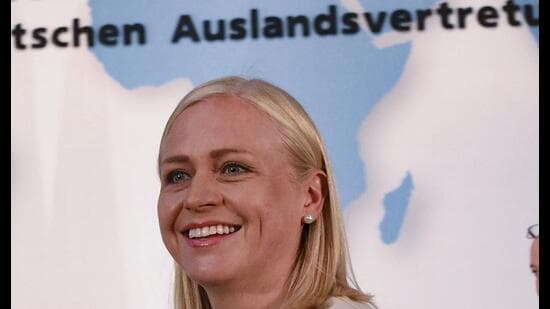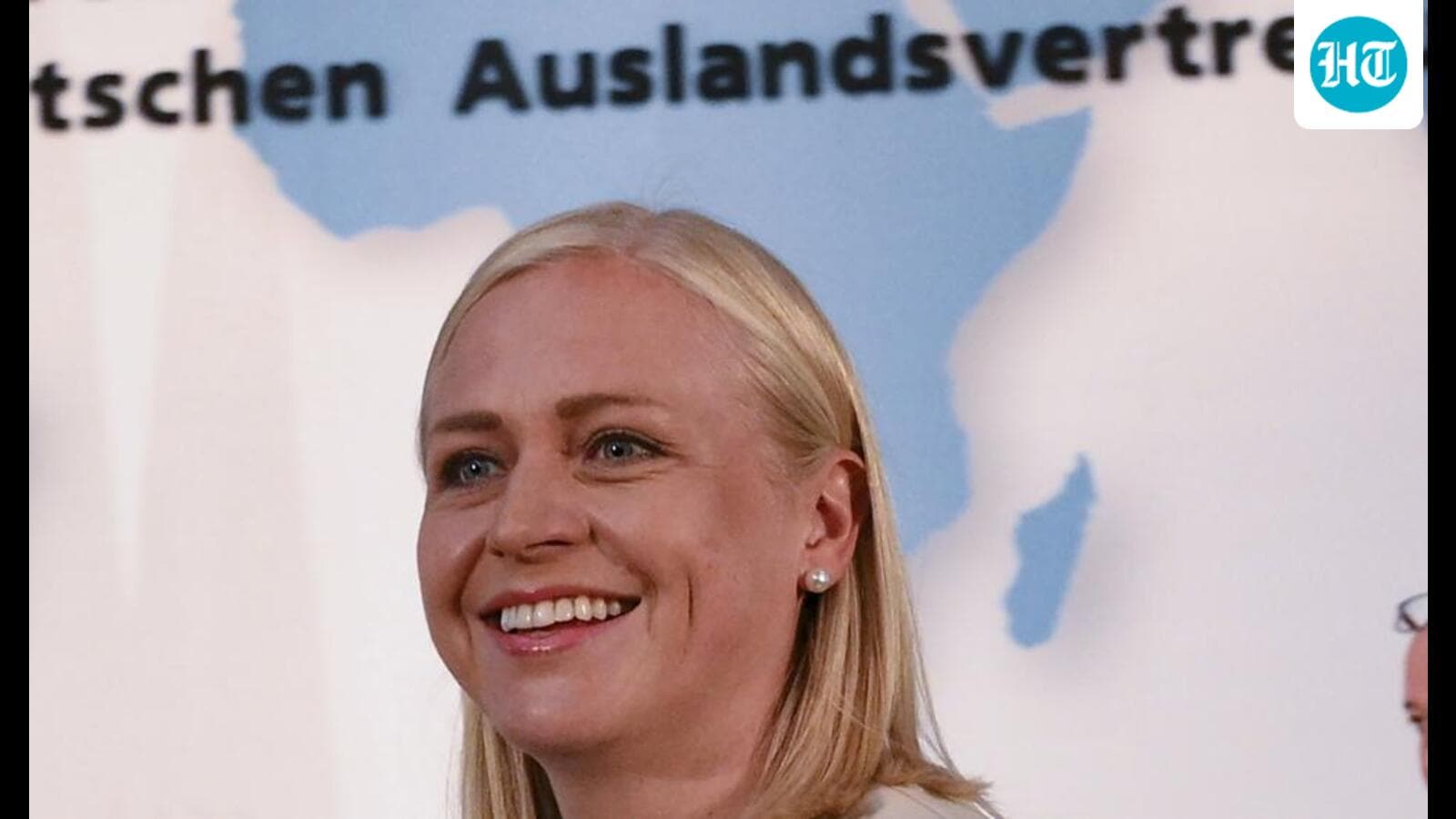Europe is not considering raising tariffs on India for buying Russian energy despite Washington’s requests to place secondary tariffs, Finland’s Foreign Minister Elina Valtonen told HT in an exclusive interview on the sidelines of the UN General Assembly. Valtonen said that EU leaders were looking to cut, not raise tariffs on India, in an effort to increase bilateral trade. Valtonen also appreciated India’s expanded efforts to end the Ukraine war, which included a phone call between Indian PM Narendra Modi and Finland’s President Alexander Stubb.
 Finland foreign minister Elina Valtonen appreciated India’s expanded efforts to end the Ukraine war, which included a phone call between Indian PM Narendra Modi and Finland’s President Alexander Stubb (AP)
Finland foreign minister Elina Valtonen appreciated India’s expanded efforts to end the Ukraine war, which included a phone call between Indian PM Narendra Modi and Finland’s President Alexander Stubb (AP)
We’ve seen India step up its diplomacy on Ukraine with PM Modi speaking with top European leaders recently on ending the war. How do you see this?
Certainly I am very happy that India has been active in this case, and every step that India can take on Ukraine, which in this case means a step towards supporting the UN Charter, territorial integrity and the rights of sovereign nations –which I know are true and important values for India too –are highly appreciated. I spoke with my colleague, Dr Jaishankar, just a few weeks ago. I think we found a lot of common ground in how we need to intensify our ties as the European Union and India and also Finland and India too. In this global context, because we have more things in common than things which are separating us.
Has India offered anything specific in terms of its support in helping end the Ukraine war in your conversations?
I would not like to go into details of confidential conversations, but we do appreciate the role that India is playing in trying to hunt down the circumvention of sanctions, and also, since India is buying oil from Russia, that India is attempting to do so within the oil price cap. It is so crucially important that we are able to hamper Russia getting income for its war machine. And therefore it should also be in the interest of India from that geopolitical context, but of course, also from a context of not having to pay too much if you stay within the oil price cap.
We saw President Trump request European nations to join in the sanctions against Russia, perhaps also the secondary tariffs against India. Would you speak more generally about the view of Europe on this?
Europe has a very effective sanctions policy in place, and our tool to have Russia end its illegal war is first and foremost, those sanctions. We are also looking at tariffs, but those tariffs would rather be imposed directly on Russia, since, unlike the United States, Europe does still import some goods and services from Russia. Quite a lot of that is, of course, sanctioned, and we have been able to reduce, for instance, our crude oil import from Russia by 90%. More needs to be done, but that’s our primary way of doing things. Now, what we look forward to doing with India is increasing our trade. And that would mean that rather than setting up new tariffs, we would rather like to reduce them and see the FTA negotiations proceed in good faith and as soon as possible. But having said this, of course, we hope that also from the geostrategic perspective, India would align itself a little bit also closer to the foreign policy that the European Union is actively engaged in.
So Europe’s policy is not necessarily to place secondary tariffs on India and China?
Well, that’s the European position. And of course we are curious to investigate new ideas, but currently we haven’t seen a need for that, because we have observed that the existing policy of sanctions is quite rigid enough, especially combined with the oil price cap.
We’ve just seen the European Union release a new strategic document outlining the possibility for closer cooperation with India. Where would you like to see the India-Europe relationship go, particularly on questions on defence?
I think increased cooperation and trade and investment in technology and also in dual use products. Also, perhaps to a degree, cooperation of defence equipment. I think there’s a lot we can learn from each other and benefit from each other.
